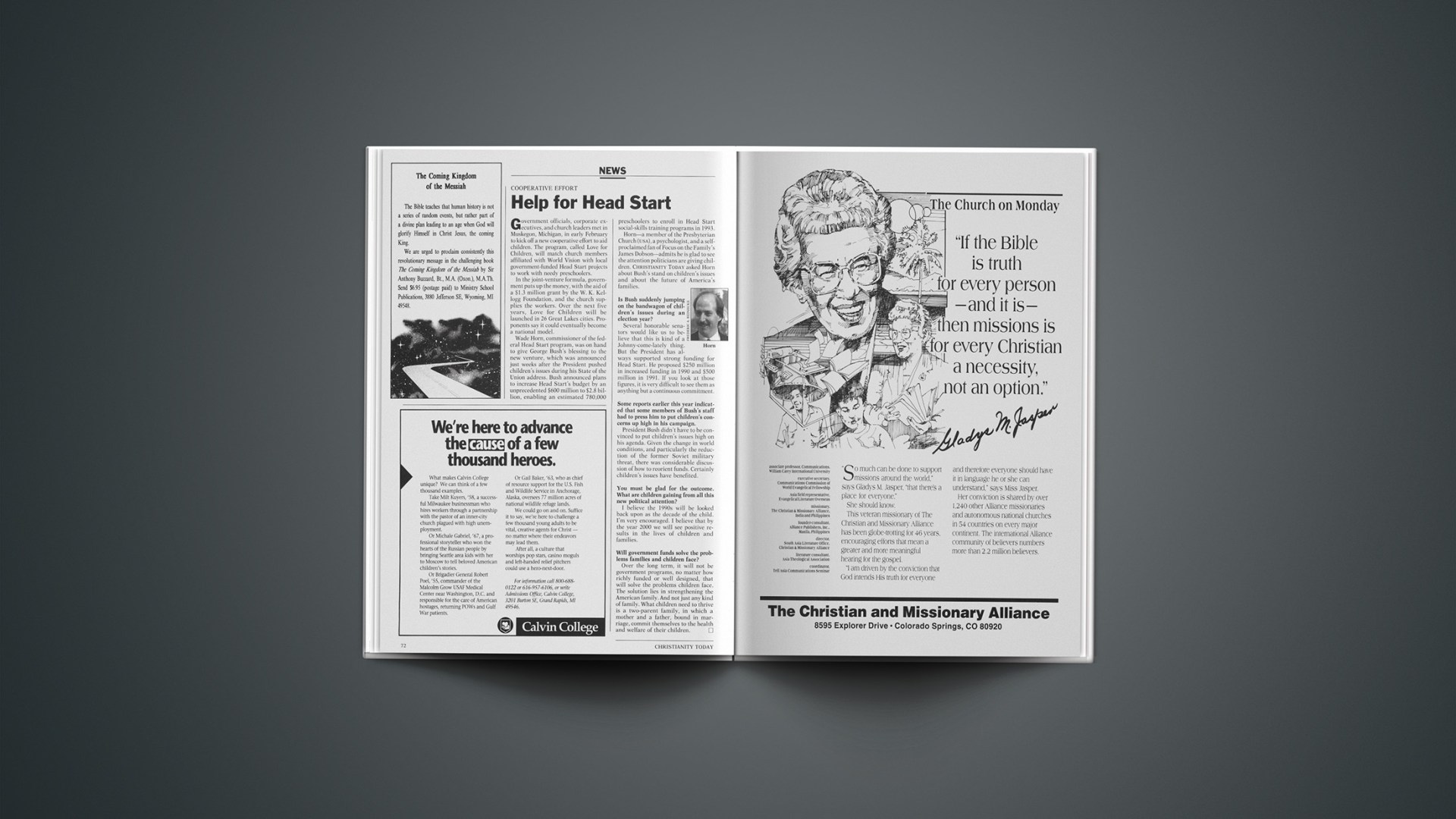Government officials, corporate executives, and church leaders met in Muskegon, Michigan, in early February to kick off a new cooperative effort to aid children. The program, called Love for Children, will match church members affiliated with World Vision with local government-funded Head Start projects to work with needy preschoolers.
In the joint-venture formula, government puts up the money, with the aid of a $1.3 million grant by the W. K. Kellogg Foundation, and the church supplies the workers. Over the next five years, Love for Children will be launched in 26 Great Lakes cities. Proponents say it could eventually become a national model.
Wade Horn, commissioner of the federal Head Start program, was on hand to give George Bush’s blessing to the new venture, which was announced just weeks after the President pushed children’s issues during his State of the Union address. Bush announced plans to increase Head Start’s budget by an unprecedented $600 million to $2.8 billion, enabling an estimated 780,000 preschoolers to enroll in Head Start social-skills training programs in 1993.
Horn—a member of the Presbyterian Church (USA), a psychologist, and a self-proclaimed fan of Focus on the Family’s James Dobson—admits he is glad to see the attention politicians are giving children. CHRISTIANITY TODAY asked Horn about Bush’s stand on children’s issues and about the future of America’s families.
Is Bush suddenly jumping on the bandwagon of children’s issues during an election year?
Several honorable senators would like us to believe that this is kind of a Johnny-come-lately thing. But the President has always supported strong funding for Head Start. He proposed $250 million in increased funding in 1990 and $500 million in 1991. If you look at those figures, it is very difficult to see them as anything but a continuous commitment.
Some reports earlier this year indicated that some members of Bush’s staff had to press him to put children’s concerns up high in his campaign.
President Bush didn’t have to be convinced to put children’s issues high on his agenda. Given the change in world conditions, and particularly the reduction of the former Soviet military threat, there was considerable discussion of how to reorient funds. Certainly children’s issues have benefited.
You must be glad for the outcome. What are children gaining from all this new political attention?
I believe the 1990s will be looked back upon as the decade of the child. I’m very encouraged. I believe that by the year 2000 we will see positive results in the lives of children and families.
Will government funds solve the problems families and children face?
Over the long term, it will not be government programs, no matter how richly funded or well designed, that will solve the problems children face. The solution lies in strengthening the American family. And not just any kind of family. What children need to thrive is a two-parent family, in which a mother and a father, bound in marriage, commit themselves to the health and welfare of their children.









